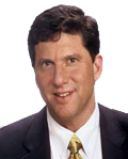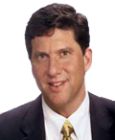Mania
Charlie Sheen: Hypomania's Poster Boy
Sheen epitomizes the dark side of hypomania
Posted March 24, 2011
"When they discuss hypomania on the Today Show, I'll know my work is done," I told a close colleague when my book, The Hypomanic Edge, was published in 2005. At that time, very few outside the mental health field had ever heard of hypomania, which is why so many people have asked me after the publication of the book if I invented the term, which of course I did not. Kraepelin was writing about hypomania a hundred years ago, but the field has always given comparatively little attention to it compared to full blown mania. In one sense, it is not surprising because hypomania is less pathological than mania, and hypomanics are unlikely to seek the help of a mental health professional unless they are depressed. But on the other hand, the dearth of awareness is surprising since hypomania is statistically far more common than mania. My hope in writing the book was that eventually the concept would become part of our shared cultural lexicon, like depression or ADD.
Thanks to Charlie Sheen, I can declare "mission accomplished." Sheen's outrageous rants and antics galvanized national attention for weeks, prompting Dr. Drew Pinsky, celebrity medical journalist, to pronounce on the Today Show that Sheen was hypomanic. "Part of the challenge of hypomanic patients is they don't believe they have a problem," said Pinsky. "They believe you're the problem. So, it's very difficult to get them to cooperate."
As if to illustrate Pinsky's point, Sheen responded to Pinsky defiantly, "I'm not bipolar. I'm bi-winning," he said, and challenged the "so-called expert" to a fight: "I think me and Pinsky should jump in the ring and he should see how unstable these fists of flaming fury are. Yeah, dude. I'll show you how unstable I am. Bring it. Bring it, little man."
In a subsequent interview on the Joy Behar show, Pinsky defended his diagnosis of Sheen, even though Sheen is not his patient and he has never interviewed him. "It's really for me, no different than looking at a rash. If somebody who uncharacteristically has a grandiose belief that they have special powers, there's a torrent of speech, there's distractibility, flight of ideas, seemingly endless energy, hyper-sexuality -- those are all criteria for a condition called hypomania. It simply defines what hypomania is." Indeed, as I always say, it doesn't take a rocket scientist to diagnose hypomania because the signs are the opposite of subtle. They are in your face.
Sheen's erratic pressured disorganized rants were chocked with bizarre grandiose statements declaring his almost superhuman superiority:
"I'm a high priest Vatican assassin warlock."
"I have Adonis DNA."
"I'm tired of pretending I'm not special. I'm tired of pretending I'm not a total bitchin' rock star from Mars."
"I'm different, I have a different brain. I got tiger blood, man."
"You borrow my brain for just five seconds, and it would be like 'Dude, I can't handle it. Unplug this'"
When asked on Today if he was manic, Sheen denied it, but admitted he was "grandiose." However, since he's a superior human being "who lives a grandiose life" it's not really grandiosity in his case, according to him.
Even as a drug addict he was superior. "I was banging a seven gram rock that would kill most people. That's how I role. I have one speed one gear, go! That's more than normal people could survive. I've got tiger blood." To cure his drug addiction, unlike normal mortals, he needed no help, no AA, no meds, no time set aside for recovery: "I blinked and I cured my brain."
All the characters I describe in the Hypomanic Edge had both spectacular rises and falls, both fuelled by their hypomania. And the falls were often for the very kind of out of control arrogance and grandiosity that Sheen has come to embody. Sheen is a poster child for hypomania's dark side of erratic arrogance and relationship destruction. Much of his most acidic vitriol was aimed at the studio executives who pay his 8 figure salary. Though "Two and a Half Men" is one of the most popular and lucrative shows on TV, CBS cancelled the show. "[Sheen] has been engaged in dangerously self-destructive conduct and appears to be very ill," the studio wrote. But another remarkable theme in the lives of hypomanics is that after they fall, they often rise all over again, bouncing back like a big rubber ball. Bill Clinton, for example, got the nickname "The Comeback Kid" (I wrote a book about Clinton's hypomania, "In Search of Bill Clinton"), because every time his career looked finished due to his own excesses, he bounced back stronger than ever.
The postscript to the story is that Sheen is not finished, either. Far from it. "It seems hot-tempered Charlie Sheen is still hot property in Hollywood," wrote the Daily Mail on March 21."The 46-year-old actor is said to be in high-level talks with the Fox network about various career opportunities, including a late night show of his own... And CBS executives, who fired the troubled star in the wake his bizarre rants and crazy antics last month, are said to be eager to get him back on Two and a Half Men."
Normal mortals would never come back from the kind of public spectacle Sheen has become. Yet his fame has only increased. Sheen may be crazy, but he's right about one thing: He's winning!




